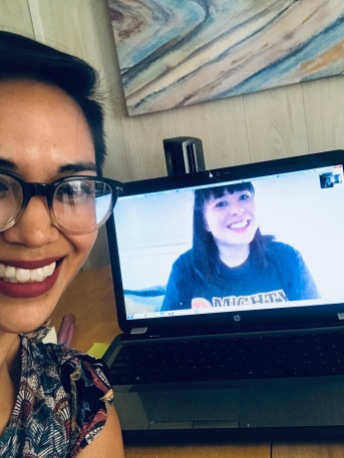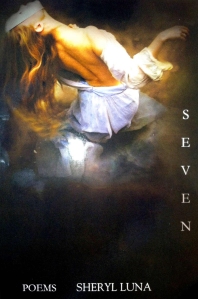
By Leighman Red Eagle
In light of the boiling climate of rabid sexism in the gaming community caused by GamerGate, attending the “Why Female Fans Matter” panel at this year’s Comikaze was an inspiring and rejuvenating experience.
GamerGate, a so-called “movement” meant to protest against corruption in video game journalism, led droves of gamer enthusiasts to vilify, harass, and threaten prominent women in video games.
Misogyny has plagued the female experience in nerd culture before GamerGate laid bare the toxic undercurrent affecting women. Thus, the importance of creating safe places for women to express themselves and find camaraderie with other women is more urgent than ever.
Moderator of the “Why Female Fans Matter” panel and Editor in Chief of FangirlNation.com, Victoria Irwin, introduced the panel by briefly addressed GamerGate and announced—“Don’t worry. It will blow over.”
The majority of panelists consisted of women who have already gathered to express their individual and collective love of media on a website called FangirlNation.com. The goal of the website is summarized in the following excerpt from their “About FangirlNation” page:
“We embrace all levels or fandom, nerdery, geekdom and culture, knowing that in the end we are all passionate about something. We banish the concept of “fake geek girl” knowing every woman deserves the chance to love what she loves without being questioned for her dedication.
We are Women. We are Fangirls. We are United in What We Love.
We are the FangirlNation and we want you to join us!”
The term “fake geek girl” is negative and dismissive stereotype of women who claim to be fans, or geeks as a means of gaining attention. This slur is notoriously used to bully and shut women out of the geek community by questioning their credibility.
The panel was a wonderful way for women to dispel this stereotype and to share their flourishing safe place for others to witness. The panelist list included: Stephanie Hayslip, Jonelle Davila, Bethany Davis, Toni Adams, and A. Wrighton.
To kick off the questions, Irwin asked what their first introduction to geeky media and what got them hooked.
Bethany Davis, the craft columnist for FangirlNation.com and cosplayer, explained that she was raised in a home that celebrated genre and cult media. She added that her father used to go around the house yelling “Inconcievable!” a quote from the cult-film the Princess Bride.
Jonelle Davila, business owner of GeekdomWear.com, credited her constant exposure to geeky media to her grandmother who was a rare tried and true fan of many things. Jonelle noted that her grandma even had a “Tolkien shelf” in her home.
Wrighton, an author of genre-bending fantasy and steampunk fiction, explained that she was an avid reader of genre literature and a video game player. She then joked that she would play video games to take breaks from the progress on her current novel.
The panelists were then asked: “Have you been personally attacked by others in a fandom?”
Stephanie Hayslip, a connoisseur of horror movies and the official Loki Handler and Professional Cumberbatch Lover, shared that she has been snubbed by other horror fans who wouldn’t take her seriously enough to engage in serious conversations with her. She humorously noted, “I watch Hellraiser for comfort.”
Each panelist had experiences with microaggressions, snubbing, or attacks in the geek community. Since Bethany was dressed up as a character from the comic series Thor, she recalled that someone asked her whether she liked Thor or if she was simply into Chris Hemsworth. Amidst groans, another panelist retorted: “Umm, both?”
Nevertheless, it was challenging to hear about the obstacles these women have had to overcome in order to maintain a sense of comfort and safety for simply being fans.
Irwin then asked: what is one of the best moments that the panelists have experienced in geek culture?
Wrighton said she was approached by soldiers who loved a novel of hers that they read in an army book club. This was a pleasant surprise for her.
Toni Adams, a fan and columnist for live events and reviews on FangirlNation.com, said her favorite moments happened through her coverage on fan websites. There were instances where authors reached out to thank her for her reviews of their comics.
Davila stated that she has a strong passion about conventions because being there, with her friends, is where she felt most like herself— convention culture is a part of her identity.
To conclude the panel, Irwin asked the panel: “Why do female fans matter?”
Toni Adams answered: “women have the buying power. In order to avoid being overlooked by financial and marketing experts, Adams iterates that women should demand their attention and consideration.
Wrighton shared about her daughter, who was brimming with happiness to dress up as Elsa from the Disney film Frozen for the convention, which made it even harder for her to understand why attackers are out there when women attend conventions to have fun.
Hayslip emphasized that people, especially women, need to seriously talk more about issues of discrimination because we are all currently paving the way for the future like Wrighton’s daughter.
After the panel, I found myself walking up to a massive audience crowding the Hot Topic Main Stage during the “My Little Pony – The Full Cast Reunion” panel.
Tara Strong, a voice actress for the My Little Pony, was given a letter a male fan had written in the voices of the characters and used to ask his date to the prom. The fan then had the honor of hearing his letter read by the actual voice actors.
“Bronies” are a fandom of boys and men who enjoy the animated show designed with themes and messages of female empowerment aimed at young girls, My Little Pony. Sometimes they are casual fans but the most notable “bronies” are men who make a stand to change cultural perceptions of males, regardless of age or orientation, and enjoy a “girly” cartoon.
While this was a wonderful experience — this celebration of the rejection of gender norms — I couldn’t help but feel a sense of imbalance in venues between the My Little Pony panel and the “Why Female Fans Matter” panel in regards to scale, space and fan participation.
As a male, I adored shows labeled as “girly” like Sailor Moon, Powerpuff Girls, Totally Spies, and more. Yet, I have never been questioned or made a fool of. I have also sailed by in conventions without running into the sort of resistance that the “Why Female Fans Matter” panelists have endured.
Of all of the casual to hardcore fans that I have met at conventions since I first started attending them in 2009, I have never had my knowledge base or personal beliefs questioned.
I was also raised in a nerdy home like Bethany Davis and Jonelle Davis, actively followed nerdy internet news sites and social media, and have seen enough memes and jokes to understand many references to television shows, books, and movies that I have never personally experienced.
If there were a term for men as widespread and hurtful as “fake geek girl,” I would definitely be accused of being one.
But the problem is that I haven’t.
I have never had anyone call me out for taking pictures of Chris Hemsworth, despite not knowing a single thing about Captain America besides what is presented in the Marvel Cinematic Universe.
The amount of Tweets tagged with “#GamerGate” that criticized or accused men for being a part of the “corruption” of gaming journalism were nowhere near as numerous or threatening as those sent to women.
It is horrid that the public finally noticed this rampant sexism when these women journalists feared for their safety and forcibly left their homes.
Hearing the panelists at “Why Female Fans Matter” and witnessing their endless supply of jokes and laughter made me appreciate that these women have found each other and are making spaces for other women to come together and to enjoy what they love without resistance.
This discussion reinforces the importance of looking critically at how society treats women in the geek culture and how everyone can work together to make it safer for women.
***

Leighman Red Eagle
Leighman Red Eagle is currently a fourth year undergraduate studying Creative Writing at the University of California, Riverside. Currently, he is the art editor for the University’s art and literary journal, Mosaic. He born and raised in Moreno Valley, CA.


















